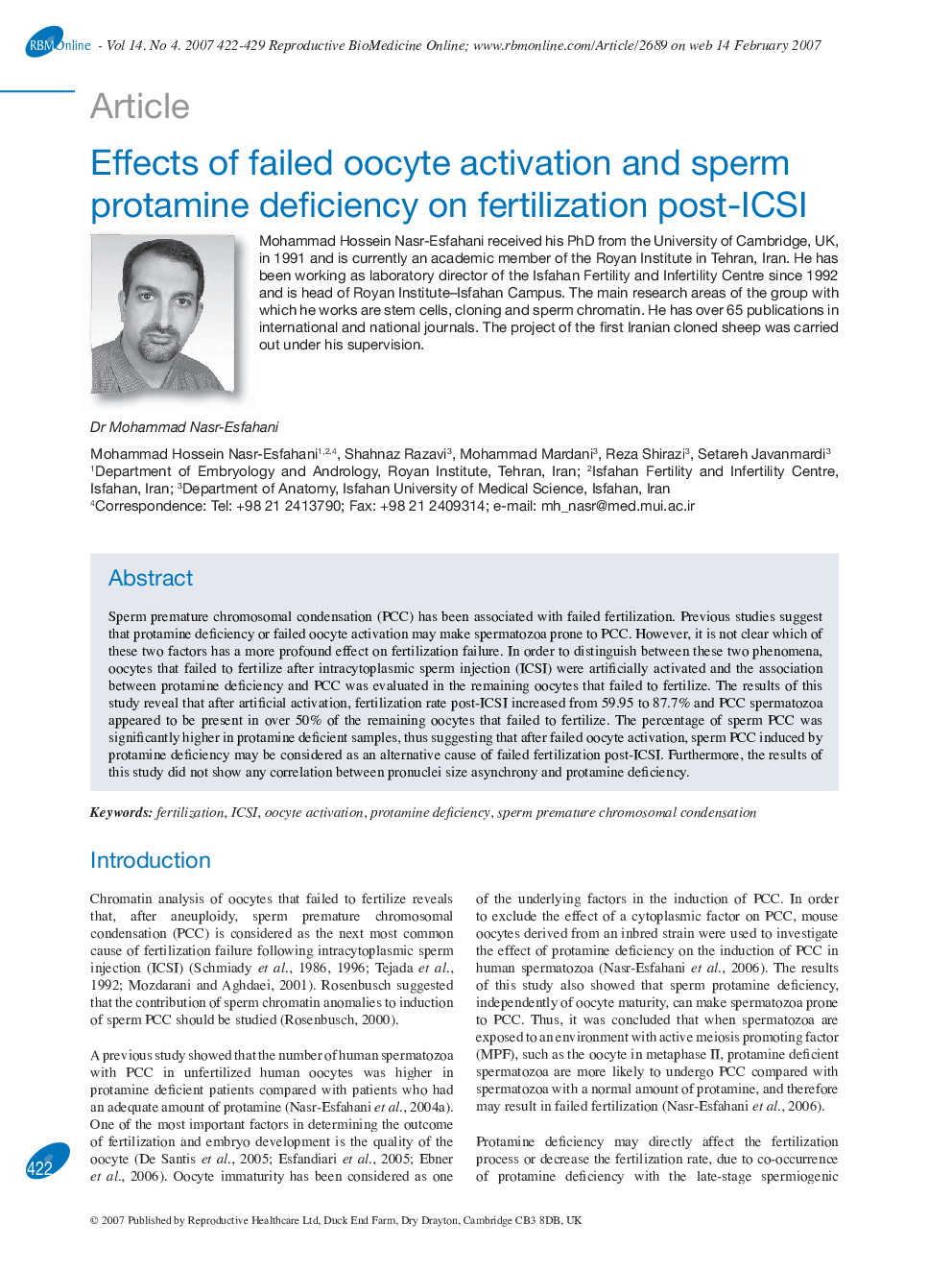| Article ID | Journal | Published Year | Pages | File Type |
|---|---|---|---|---|
| 3972937 | Reproductive BioMedicine Online | 2007 | 8 Pages |
Sperm premature chromosomal condensation (PCC) has been associated with failed fertilization. Previous studies suggest that protamine deficiency or failed oocyte activation may make spermatozoa prone to PCC. However, it is not clear which of these two factors has a more profound effect on fertilization failure. In order to distinguish between these two phenomena, oocytes that failed to fertilize after intracytoplasmic sperm injection (ICSI) were artificially activated and the association between protamine deficiency and PCC was evaluated in the remaining oocytes that failed to fertilize. The results of this study reveal that after artificial activation, fertilization rate post-ICSI increased from 59.95 to 87.7% and PCC spermatozoa appeared to be present in over 50% of the remaining oocytes that failed to fertilize. The percentage of sperm PCC was significantly higher in protamine deficient samples, thus suggesting that after failed oocyte activation, sperm PCC induced by protamine deficiency may be considered as an alternative cause of failed fertilization post-ICSI. Furthermore, the results of this study did not show any correlation between pronuclei size asynchrony and protamine deficiency.
